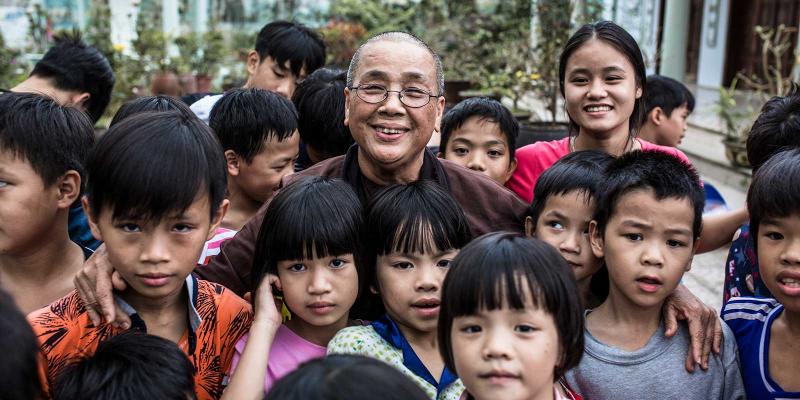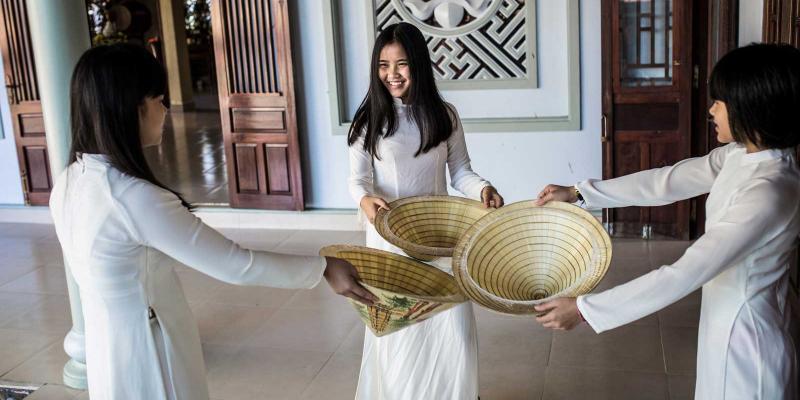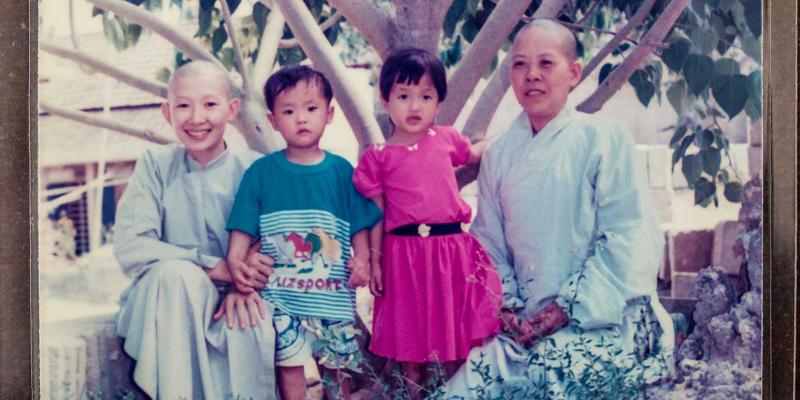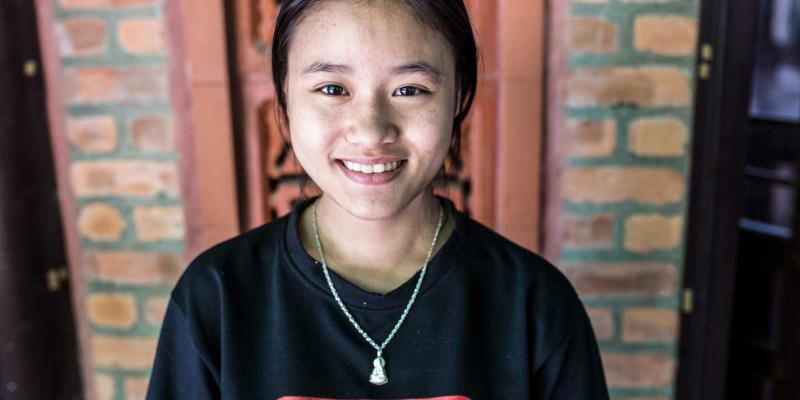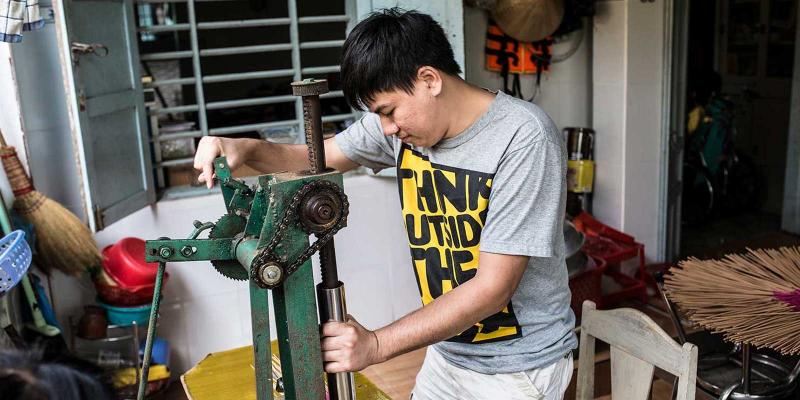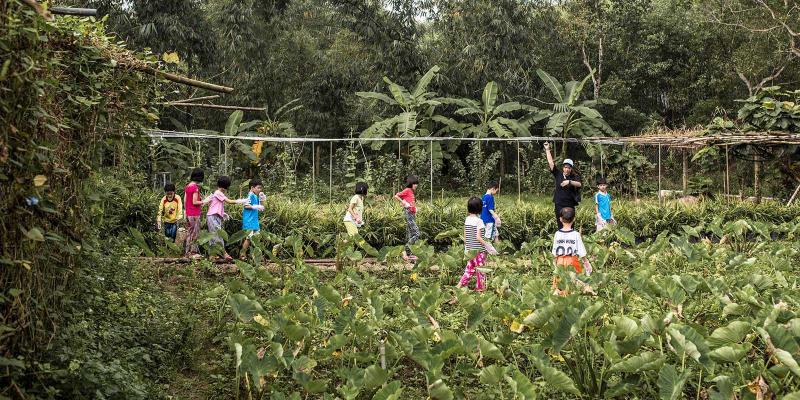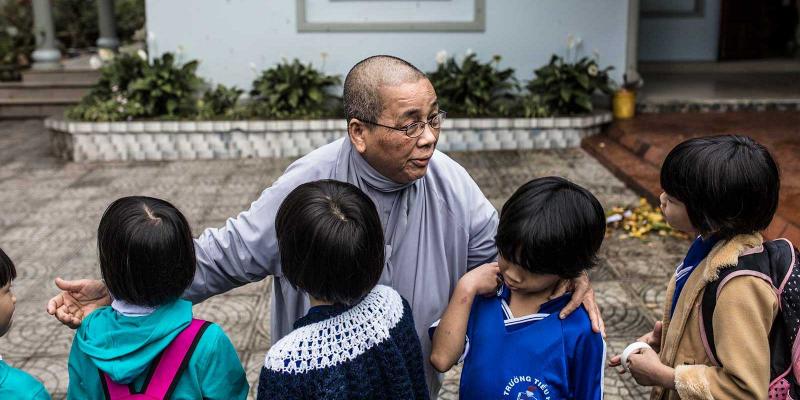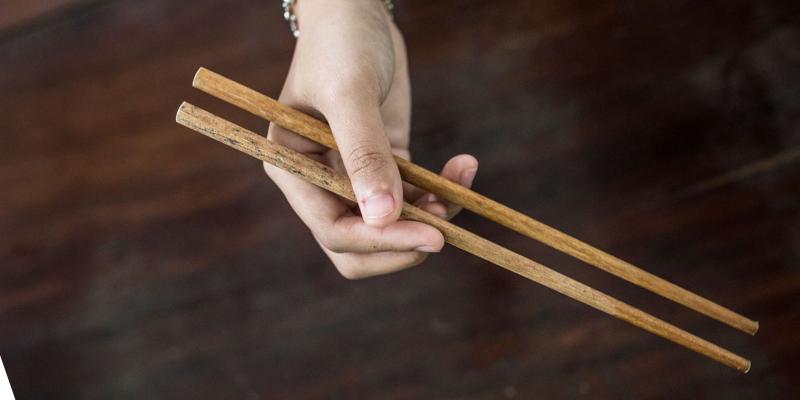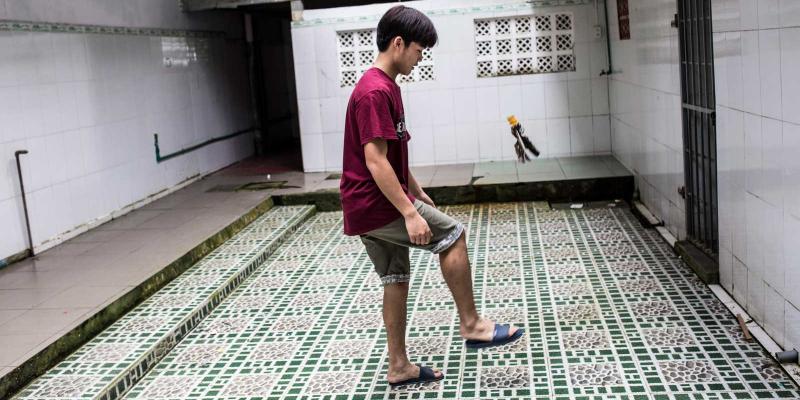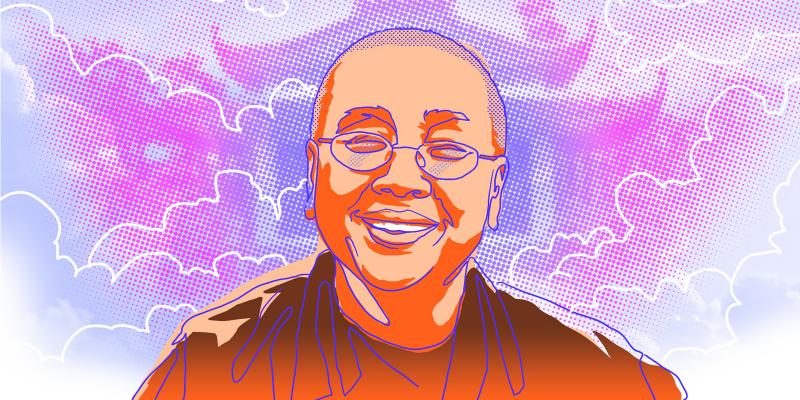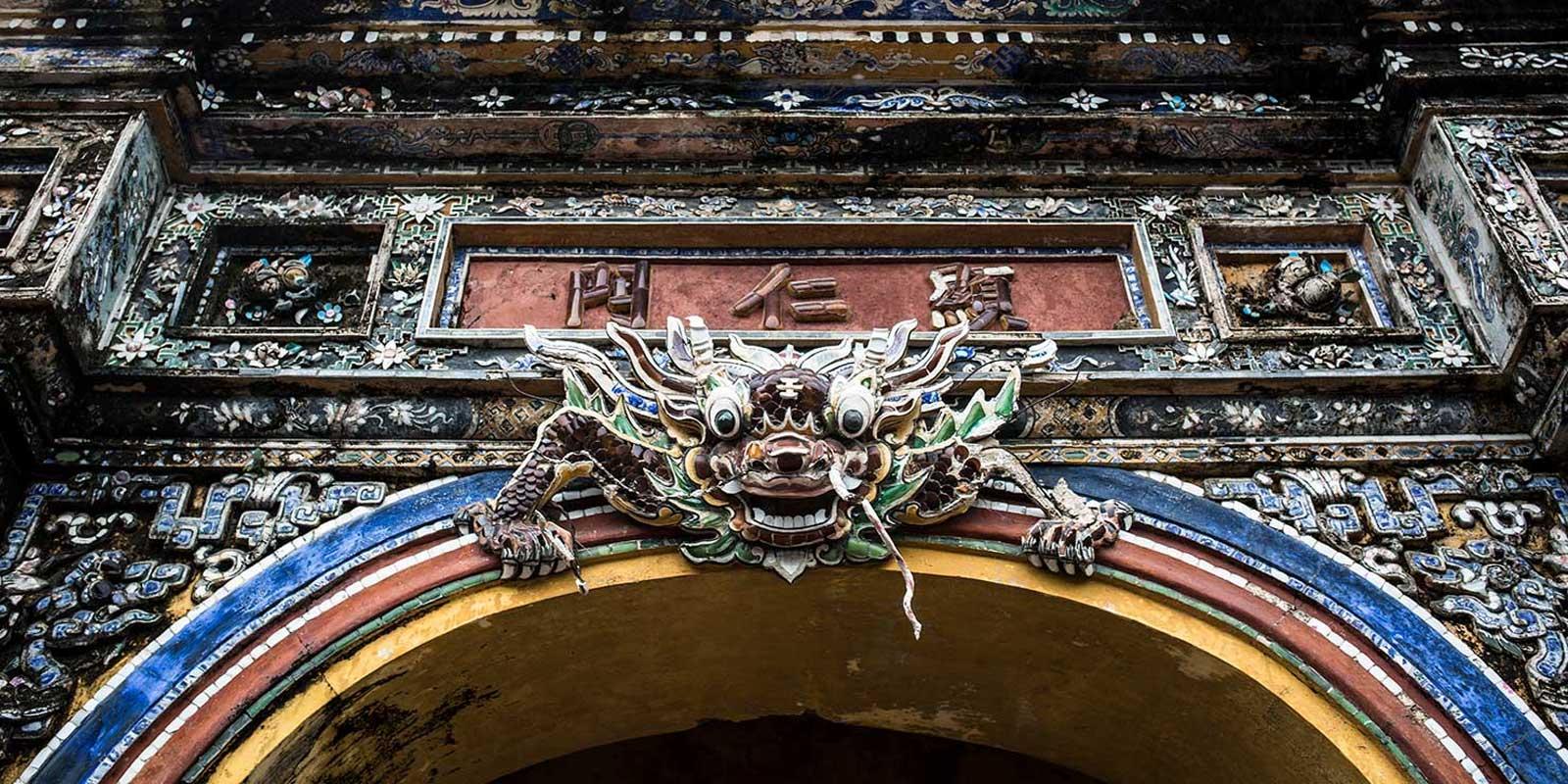
According to Buddha, life is an endless cycle of suffering. Humans are never satisfied. We are constantly striving for more. So a person will never be free until they free themselves from all cravings and desires.
Buddha created an order of monks and an order of nuns. People who become Buddhist monks or nuns are regarded as having come very far in achieving harmony and freedom from the desire for more.

The monks and nuns live in self-imposed poverty and have pledged never to marry or have children. They rely on the gifts and generosity of others. Followers of Buddhism have a religious duty to give food and gifts to monks and nuns.
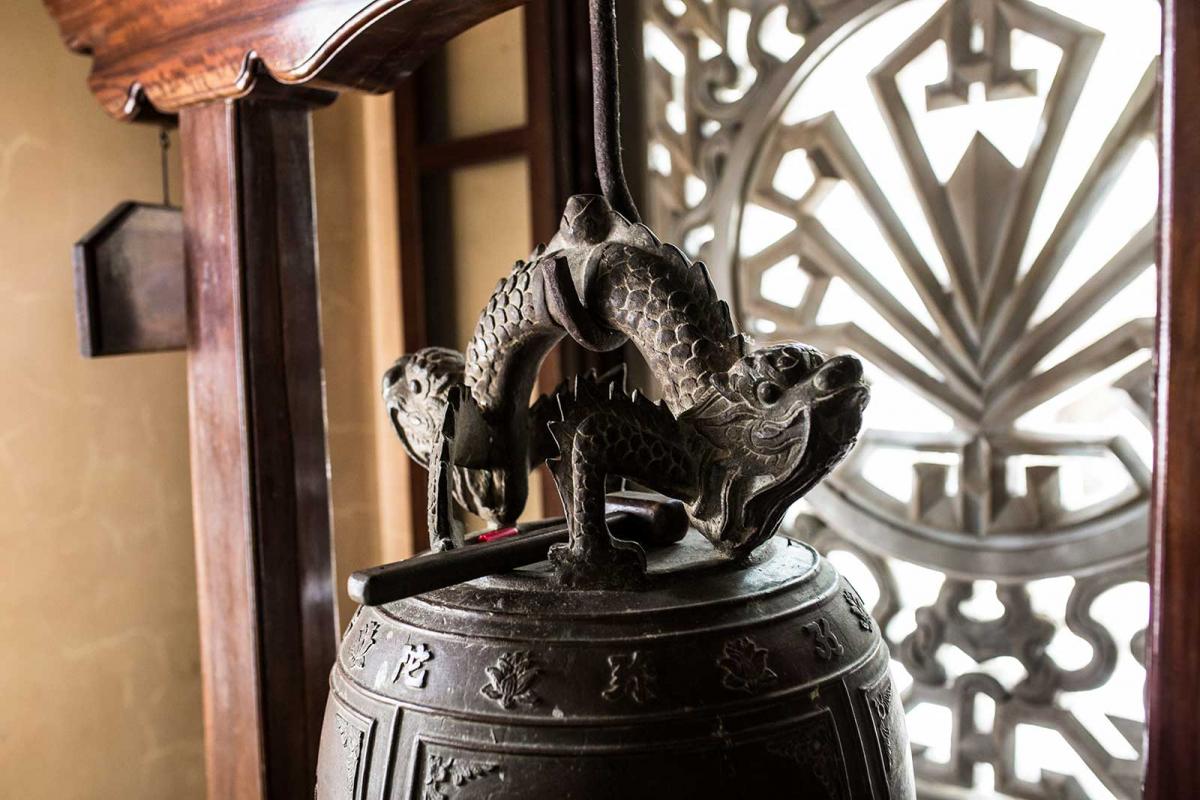
At the pagodas, the monks and nuns devote a great deal of time to study, teaching and meditating. Because of their lifestyle, the monks and nuns are role models for everyone living in a Buddhist community.
Text: Erik Halkjaer
Photo: Jesper Klemedsson
Related stories
Långgatan 13, 647 30, Mariefred, Sweden
Phone: +46-159-129 00 • info@worldschildrensprize.org
© 2020 World’s Children’s Prize Foundation. All rights reserved. WORLD'S CHILDREN'S PRIZE®, the Foundation's logo, WORLD'S CHILDREN'S PRIZE FOR THE RIGHTS OF THE CHILD®, WORLD'S CHILDREN'S PARLIAMENT®, WORLD'S CHILDREN'S OMBUDSMAN®, WORLD'S CHILDREN'S PRESS CONFERENCE® and YOU ME EQUAL RIGHTS are service marks of the Foundation.



